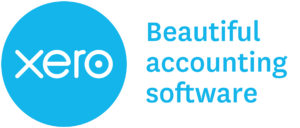 When applying for jobs, whether you’re a recent graduate, more experienced, or a returner, it can be difficult to know how to get your your CV into tip-top condition. Don’t worry. You’re not alone!
When applying for jobs, whether you’re a recent graduate, more experienced, or a returner, it can be difficult to know how to get your your CV into tip-top condition. Don’t worry. You’re not alone!
We’ve distilled some of the best advice on how to create a great STEM resume that highlights your skills and packages your work and life experiences in a way that shows off both your technical expertise and personal strengths that employers are looking for. These tips will help you stand out from the crowd when you’re writing your CV as well as when you are speaking to recruiters during the Finding Ada Online Careers Fair for Women in STEM.
Make sure to tick the basic boxes
In your CV, and also discussions with recruiters, don’t get so nervous that you forget to include basic information. List your technical skills and experience right at the top or early on in the conversation with the recruiter. If you’re a recent graduate, include all your relevant coursework and projects, plus any placements or internships you’ve had.
“An effective resume must convince prospective employers that hiring you benefits their business,” says Leslie Toth, a professional resume writing coach, who has posted a guide to writing a STEM CV on Slideshare. Your CV must be concise, no more than two pages long, but not boring. Don’t just list the jobs you’ve had, talk about your responsibilities in each position, and skills you’ve developed.
Choose skills that are relevant to the position
When applying for jobs, think in terms of quality not quantity. It is tempting to want to increase your chances by spamming employers with an identikit CV, but this is self-defeating. Don’t apply for positions that you really want just for the sake of it — that’s a waste of your time and the recruiters’ time.
You want to be happy in the job that you do, and you’ll have a better chance of landing your dream job if you focus on high-quality jobs that stretch you a little bit.
Read the job description carefully, make a list of the experience, skills and knowledge that the employer is asking for, and highlight the parts of your CV that are relevant. Do not be put off if you find that a job is asking for a bit more than you think you have to offer. Job descriptions often include shopping lists of qualities which include every single thing the recruiter can think of. That doesn’t mean they expect you to tick every box and, indeed, research shows that your male peers will be applying for jobs even when they don’t meet all the criteria. So take a chance and let the recruiter decide if you have sufficient experience.
When you speak with recruiters during the job fair, highlight the skills you have that are relevant to the roles and company that you are speaking with. Remember, one of the fastest ways to make a great impression is to show that you’ve done your homework and researched the company as well as their products and services. It is a great way to demonstrate that you see yourself as meeting their needs.
Look at the CVs of researchers you admire or want to work with
If you run into writer’s block while you are working on your CV, or trying to think of things to say during your chat with recruiters, Smith College in the US has a great guide to writing a STEM CV. They have this excellent piece of advice: Review the CVs of “researchers you admire or seek to work with (generally available online), as these can provide good examples to follow.”
And Prospects has a variety of sample CVs in different styles, such as chronological or skills-based, and for for different types of job, such as academic, teaching, or technical jobs. Take a look through the examples and let them spark ideas on how to package your own skills and experience.
Transferable skills are important
One of the most important bits of job hunting advice you will ever get is that all skills are transferable.
Whether you’re a graduate with work experience opportunities through internships, in your first or second job, or are returning to work after a career break, it’s certain that you have more transferable skills than you think you do. These are skills might be specific, such as knowing how to use Microsoft Office, understanding how spreadsheets work, take minutes in a meeting, or organising a schedule, or they might be more personality-related, like being able to communicate clearly, work in a team, take direction and respond well to feedback.
CV writing service Craft Resumes gives this bit of concrete advice: “For students just starting out in their careers, adaptive skills are shown in their coursework, while transferable skills are established in their internship or any summer jobs. Some graduates may omit these skills thinking they are irrelevant, but they do carry weight in your job search efforts.”
Even temporary jobs in unrelated fields like hospitality or retail can prove that you have good transferable skills. They are worth highlighting when they fill gaps in your subject-specific experience, but keep this experience lower down in your CV, below any technical skills and directly relevant experience you have.
Pay attention to detail
Finally, one of the most important skills for any candidate is attention to detail. Entry level roles are often quite competitive, and recruiters will reject a CV with spelling or grammar mistakes, so make sure your CV is well written and free of errors. Ask a friend or colleague to proofread it and, for a final check, read it out aloud — that will highlight any mistakes or phrases that read badly.
Your CV isn’t a static document, it should change as your job search evolves, and as you learn what employers respond well to and what might be missing. Don’t just write one CV and use it for everything, rather, create a suite of CV templates for different types of job, and then tailor your CV specifically for the job you’re applying for right now. It might feel like a lot more work, but will get easier with practice, and will increase your chances of landing that all-important interview.
Your CV will make your first impression, so work hard on making it a good one.
 The Finding Ada Online Careers Fair for Women in STEM was sponsored by Xero, a beautiful, easy-to-use online accounting software for small businesses and their advisors. It has over one million subscribers in more than 180 countries, with more than 250,000 of those in the UK.
The Finding Ada Online Careers Fair for Women in STEM was sponsored by Xero, a beautiful, easy-to-use online accounting software for small businesses and their advisors. It has over one million subscribers in more than 180 countries, with more than 250,000 of those in the UK.